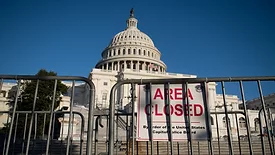Home » violence
Articles Tagged with ''violence''
Research highlights mass violence motivated by misogyny
Communities need a multidisciplinary threat assessment program to prevent tragedies caused by this type of extremism
March 21, 2022
Top de-escalation strategies and training for security leaders
Security and de-escalation are often intertwined. Learn how security pros implement best-in-class de-escalation strategies.
August 2, 2021
Sign-up to receive top management & result-driven techniques in the industry.
Join over 20,000+ industry leaders who receive our premium content.
SIGN UP TODAY!Copyright ©2026. All Rights Reserved BNP Media.
Design, CMS, Hosting & Web Development :: ePublishing










